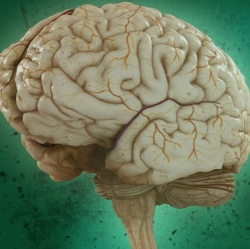
Scientists at the universities of Cardiff and Cambridge believe they can help explain why some people are prone to hallucinations. Researchers worked to study the predictive nature of the brain. They looked at the idea that hallucinations happen due to the brain’s tendency to interpret the world using prior knowledge and predictions.
The study examined whether the brain creating this image of the world contributes to people’s psychosis. Research published on Monday in the journal Proceedings of the National Academy of Sciences studied 18 people who suffered from very early signs of psychosis who had been referred to a mental health service run by the Cambridgeshire and Peterborough NHS Foundation Trust.
They compared them to 16 healthy volunteers and asked them if they could make sense of vague black and white images. All of them were then shown the full colour original picture to improve the brain’s ability to understand the ambiguous image.
There was a larger performance improvement in people with early signs of psychosis compared to the healthy control group. The University of Cambridge’s Naresh Subramaniam said: "These findings are important because, not only do they tell us that the emergence of key symptoms of mental illness can be understood in terms of an altered balance in normal brain functions.
"Importantly, they also suggest that these symptoms and experiences do not reflect a ‘broken’ brain but rather one that is striving – in a very natural way – to make sense of incoming data that are ambiguous."
